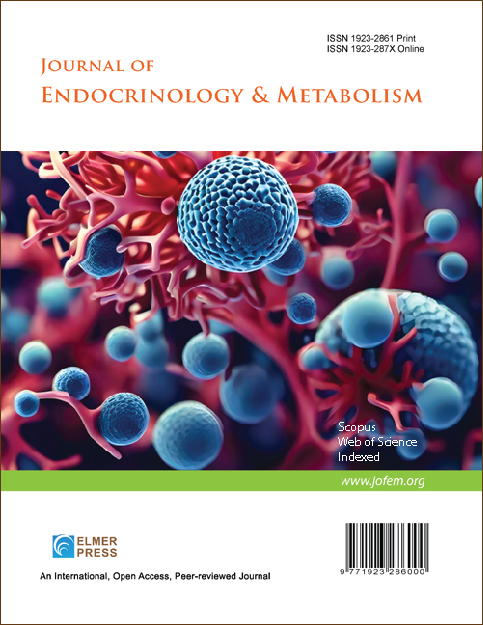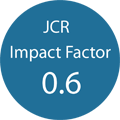Craniopharyngiomas, Alterations of Melatonin Secretion and Their Implications: A Systematic Review
DOI:
https://doi.org/10.14740/jem1529Keywords:
Craniopharyngioma, Melatonin, Pituitary neoplasm, Hypothalamus, Pineal gland, Circadian rhythm, Hypothalamic disease, Circadian dysfunctionAbstract
Craniopharyngiomas are rare sellar tumors that often cause hypothalamic dysfunction due to either their extension or treatment. This dysfunction can disrupt the suprachiasmatic nucleus and impair circadian rhythms like melatonin secretion, with potential effects on sleep, metabolism, and overall quality of life. Despite growing interest, the role of melatoninergic dysregulation in craniopharyngioma survivors remains uncertain. Therefore, this study aims to systematically review the current literature on melatonin secretion in both adult and pediatric craniopharyngioma patients, assess the risk of bias, evaluate the consistency of findings, estimate the certainty of current evidence, and discuss the clinical implications of melatonin alterations. A systematic review was conducted following the Preferred Reporting Items for Systematic Reviews and Meta-Analyses (PRISMA) 2020 guidelines, using the electronic databases of PubMed/MEDLINE, Embase, Scopus, Web of Science, and the Cochrane Library. The search targeted studies evaluating melatonin secretion in adult and pediatric craniopharyngioma patients, with or without comparisons to healthy controls. The risk of bias was assessed using the Risk of Bias in Non-randomized Studies - of Interventions, Version 2 (ROBINS-I V2) tool, while the overall certainty of evidence was evaluated considering the risk of bias, consistency, directness, precision, and publication bias. Four studies met the inclusion criteria. All reported disrupted melatonin secretion in craniopharyngioma patients, though the patterns varied. Most showed reduced nighttime melatonin levels or altered secretion profiles, particularly regarding release onset and its peak. Significant correlations emerged between melatonin disruption and clinical outcomes such as higher body mass index (BMI), increased daytime sleepiness, poorer sleep quality, reduced physical activity, and altered circadian timing. The risk of bias was low in two studies and moderate to serious in the others, while the overall certainty of evidence was rated as moderate due to the small number of studies and their heterogeneity. Evidence suggests that melatonin secretion is frequently altered in craniopharyngioma survivors, potentially affecting sleep, metabolism, and psychological well-being. While findings are consistent, methodological differences and limited data reduce the certainty of evidence. Future research should prioritize standardized protocols, larger cohorts, and longitudinal designs to clarify the role of melatonin in various comorbidities and the potential of this hormone as both a diagnostic and therapeutic tool. Melatonin may serve not only as a biomarker for hypothalamic injury but also as a possible adjunctive treatment in the context of a hormonal replacement therapy.

Published
Issue
Section
License
Copyright (c) 2025 The authors

This work is licensed under a Creative Commons Attribution-NonCommercial 4.0 International License.









